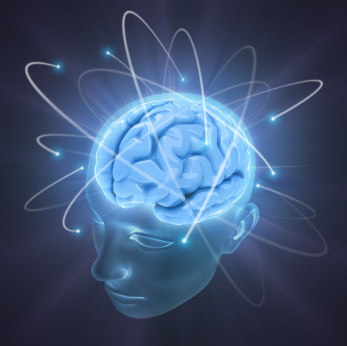 This may seem like a funny question, but do you know the answer? Are you using all of your intelligence? We don't mean "business intelligence" in the sense of consumer data, research and business results. We are talking about your own personal intelligence. You probably believe you "give it your all" and use all of your capacities and capabilities - but are you sure?
This may seem like a funny question, but do you know the answer? Are you using all of your intelligence? We don't mean "business intelligence" in the sense of consumer data, research and business results. We are talking about your own personal intelligence. You probably believe you "give it your all" and use all of your capacities and capabilities - but are you sure?
The fact is, there are three ways that we as human beings detect, receive and process information. There are three centers of intelligence - the head, the heart and the gut.
Our culture primarily values the head or intellect. Ever since the time of the philosopher, mathematician and physicist, Rene DesCartes, ("I think therefore I am"), the intellect has been prized as the center of our understanding, intelligence and knowledge.
However, at some level, we all know this belief is not quite accurate. For example, we know the heart provides us with key information. We have all heard the phrase, "I followed my heart," and we all immediately understand what that means. Think about that phrase for a moment. If the heart didn't provide us with information, how could we follow it? And if the information wasn't powerful, why would we follow it? It turns out that scientific studies about the power of the heart show there is an extaordinary amount of energy and information coming from and through the heart. In fact, there is now evidence that a type of neural tissue is present in the heart which indicates the heart and mind work together to process information. The Institute of HeartMath has been studying the power of the heart for years and we recommend looking into their work to find out more.
When it comes to the idea of the heart as a center of intelligence, there is some cultural ambivalence. On the one hand, we are suspicious. Isn't the heart "emotional?" Emotions "shouldn't be followed." They are "irrational" and that's not a good thing. Right? However, at the same time that we have this cultural concern, there has been alot of work done in the realm of emotional intelligence and its importance. Some have even stated that being "emotionally intelligent" is more important than having a high IQ. So although in some ways we are suspect of the heart's information, we also seem to understand its value.
How would you rate your EQ or emotional intelligence? Are you able to tune in to your emotions and what they might be telling you? Are you able to recognize what your heart has to say?
The third center of intelligence is our gut. We have all heard the phrase, "I had a gut instinct." Similar to the phrase about the heart, we all know what "having a gut instinct is" and what it means when someone says that phrase, whether we personally tune in to our gut or not. The gut actually has an extraordinary amount of neurological tissue and activity in it. So much so, that physicians regularly refer to our gut as having a "second brain."
 We can all think of examples of stories where people followed a gut instinct and it was either critical to their survival, or it changed their life, or drove them to make an important business decision. When people are tuned in to that gut information, and they are asked how they knew something or why they did what they did, the response they give is, "I just knew," and we can tell by the emphasis that the knowing came from a deep and solid place. Being able to tap into our deep-seated inner knowing is something fundamentally human that our culture does not overtly value highly.
We can all think of examples of stories where people followed a gut instinct and it was either critical to their survival, or it changed their life, or drove them to make an important business decision. When people are tuned in to that gut information, and they are asked how they knew something or why they did what they did, the response they give is, "I just knew," and we can tell by the emphasis that the knowing came from a deep and solid place. Being able to tap into our deep-seated inner knowing is something fundamentally human that our culture does not overtly value highly.
How familiar are you with your gut instincts? Can you think of times it has served you well? Are you able to tune in and hear what your gut is telling you?
People have varying degrees of connection to their three centers of intelligence. Some rely almost exclusively on one center. Some may even use two or all three, but much of this reliance can be unconscious. Processing information and decision-making is often very automatic and unexamined.
We suggest you do a little experiment and self-reflection. Watch your decision-making processes this week and see which center(s) you use. If you find you are not using all three, then the fact is, you are denying yourself valuable information. The world has become so complex and difficult to navigate, we all need all the help we can get. Your body gives you three different ways to receive and process information and these centers of intelligence may even have different perspectives on the same issue. Taking time to tune in and listen to yourself is a skill we can all develop. It is likely that if you are disconnected from a center of intelligence it will be your heart or your gut. You can actually build this connection and it's not terribly hard, it just takes practice. If you want to find out what your heart has to say, sit quietly, put your hand on your heart and ask the question you need answered. This may seem incredibly simple, but it has the effect of dropping our attention and helping us connect. The same will work with the gut.
As leaders, we can't afford to dismiss or ignore key information. And frankly, who would deny themselves the opportunity to "become more intelligent?"
